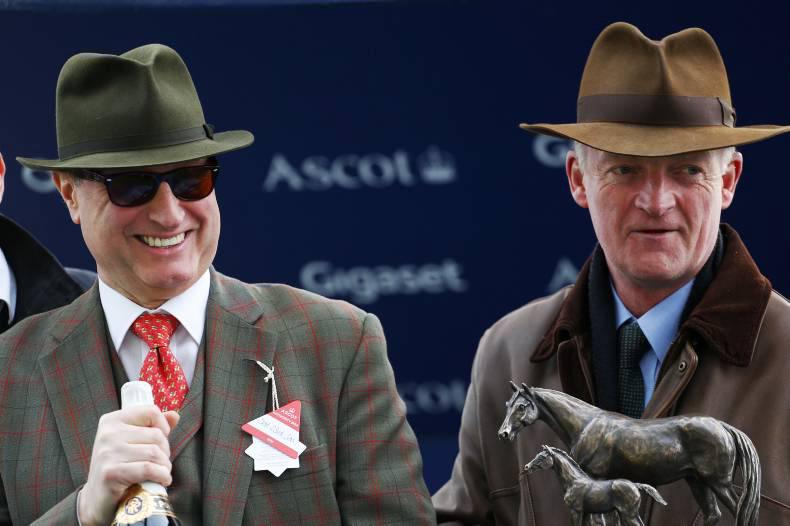WINS for the Willie Mullins trio Un De Sceaux, Douvan and Faugheen over the weekend saw something of a social media frenzy with a volley of praise initially heaped on the manner of the victories, but as the adulation abated, a minority piped up to question if the utter dominance of the Co Carlow establishment wasn’t, in fact, robbing racing of true entertainment. “Boring,” was the call, “that’s not what I want to watch at Cheltenham.”
Let’s deal with the kernel of truth in this persistent murmur of discontent. We would all love it if the races won in facile style over the weekend had been more competitive, and it’s true that while the presence of equine greatness is guaranteed to attract racegoers, a constant diet of poorly contested championship races would eventually become numbing to the senses and indeed to the betting ring.
QUESTIONS
There are two questions to ask in regard to these concerns, however. Is the dominance of a single yard over a reasonably short space of time proof that racing is heading inevitably in that direction, and even if it is, why should we blame those who are flourishing?
It’s not more than three or four years since the doom merchants were predicting that the dominance of Paul Nicholls and Nicky Henderson would see the fortunes of smaller operations wither on the vine, but that has proved to be a long way wide of the mark, with the success of Mark and Sara Bradstock far from a drop in the ocean as evidenced by the continued resurgence of Philip Hobbs and Colin Tizzard.
Dan Skelton has quickly put himself in the mix as well, and in terms of competition at an everyday level, British racing is in good shape. The fact that fewer outstanding jumpers are being trained in Britain compared to Ireland, and Mullins in particular, is far from an inevitability, either.
Rich Ricci and Michael O’Leary are very powerful owners but they are not utterly dominant in terms of the money they spend or the number of horses they have in training. Gigginstown House Stud are hardly throwing all their eggs in one basket, and don’t shy away from have several runners in any given race, so the argument that some of the most successful owners should benefit the sport by spreading their horses out is based primarily on the strength of Ricci’s team at Closutton.
MCMANUS DOMINANT
That seems to presume that Ricci is simply siphoning off all the most promising young horses, but the figures don’t add up at all. J.P. McManus remains the dominant force in terms of stable strength, with more than eight times the number of runners as Ricci, and the O’Leary brothers are clear second with over 450 runners this term.
Others with an edge on numbers include Barry Connell, Ann and Alan Potts. Few of the owners mentioned are so short of cash that they can’t compete with Mullins/Ricci at the sales, and the generally held belief that the former Barclays man has bought himself success doesn’t tally with the price tags of some of his stars. Many of the best horses in the yard have been private purchases but it’s unlikely that the average price paid for them matches that of the biggest spenders.
PERFECT STORM
It’s clear that while Willie Mullins is the finest trainer around at present, he’s also in the middle of the perfect storm, in the same way that Paul Nicholls was when he had Big Buck’s, Master Minded, Kauto Star and Denman strutting their stuff.
As the current landscape illustrates, that kind of scenario simply does not go on recurring in perpetuity, however talented the man at the helm, and the wheel of fortune will spin away at some point. For now, we have some of the most breathtaking performers around coming from a single stable, and while it’s absolutely natural to worry about the lack of challengers from elsewhere, we should, in the first instance, tip the hat to those sublime equine performers and leave the grumbling until the cheers have receded. Who knows, we may yet be in for a surprise or two in six weeks’ time.
